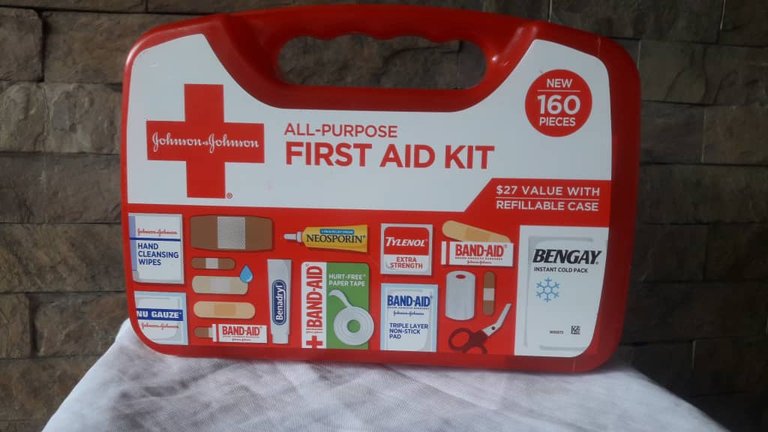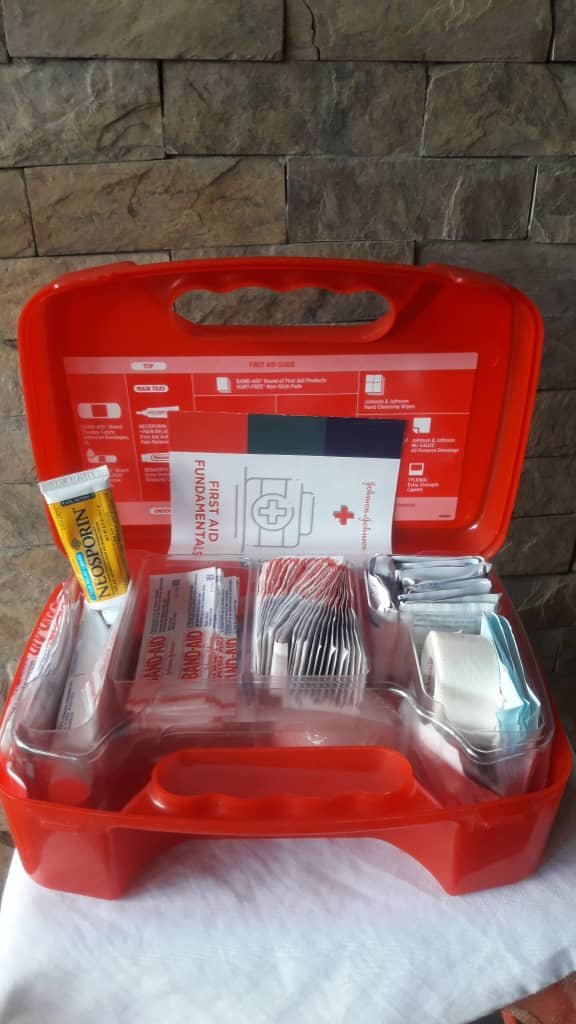
Blessed Sunday, beautiful family I hope you are well.
This weekend, I select option N#6 being:
Do you feel that your knowledge of first aid is sufficient and acceptable to use in the event of a medical emergency that may occur to a member of your family? If not, why not? Explain your answer: use your own photographs.
When we refer to first aid the term is derived from the first medical assistance received in case of an emergency, no advanced knowledge is required to apply them, in my case I can say that depending on the type of emergency we can determine whether first aid helps or not.
In the home it is necessary to have a first aid kit for possible emergencies, whether it be nosebleeds, fainting, burns, fractures, among others, being the most common and depending on their degree they can be attended immediately, to save time and thus be able to wait for trained personnel or move to the nearest medical care site.
At home we have to be careful, when using slippers that are not too slippery when bathing or cleaning the house, when cooking for a cut or burn, a low or high blood pressure are unexpected but very common events, which we must pay attention to and follow up, as time takes its toll.
Emergencies can happen anywhere, so it is very important to know at least the basics of first aid, especially for people who love to go on excursions and explore the world.

I believe that if they are simple events we can stabilise the affected person, as long as there is academic preparation involved.
As for the first help we can give to a person who has had an emergency, the following are some of them, depending on the case, of course, we must adapt to the needs and solve them.
My personal experience was a few years ago, once I was going to the University by bus, which usually these means of transport are always congested and it was time to "go as you can" when a "colector" (that is the name given to the drivers' assistants who are in charge of collecting the fares in Venezuela) tried, being at the door of the bus, to change position and just at that moment the bus shook and the bus was shaken, There was another collector accompanying him who got out before the bus had stopped and began to shake the injured man. When I approached him I pushed him away, telling him to give me space and not to move him as he could have internal injuries, in this case my reaction was as follows:
I took the pulse of the injured person (I did it in several places, i.e. both wrists, both sides of the neck and both legs) so we know that he has good circulation.
It is very important in these cases (it has been scientifically proven that this is the case) that the most efficient way is to give someone a direct order, that is to say, in this case I pointed to a person nearby and asked him to tell me his name, to which he indicated it to me and I said perfect, you call an ambulance, we must move him there, we must not move him, he may have fractures.
In this case the next step was to carefully straighten him gently as his legs had been crossed and one of his arms was underneath. By following the movement of the joints and always having one hand gently checking the bone I could determine that there was no fracture in that limb.
Once he was in "position", the only thing left to do was to wait for the ambulance, as we did not have boards or a stretcher to place him on, thus avoiding further movement of the body. When the ambulance arrived they were able to move him, but not before telling us how well done the procedure was.
It should be noted that the most important thing is to measure the pulse, as people who do not have a pulse should not be moved for forensic investigation purposes.
In my course I learned how to "splint" fractures, but there have not yet been (and hopefully will not be) cases where I have to use them.
Likewise, bandages in cases of haemorrhage, which my tutor always told me should be in the shape of an "8" so that the area to be bandaged is well covered, but we can discuss these issues in other posts.
It is necessary and essential to know the valuable tools of first aid, as we can help not only at home but also outside the home, providing one of the most important values in society and that has been lost, solidarity, activating forms of prevention.
Life always turns around, today it can be you, tomorrow it can be the one who helps you. A helping hand always adds up.
See you another time, blessings.
The deepl translator was used as my language is Spanish.

Think it is very important for one to have basic knowledge before addmistering first aid
Having knowledge about first aid is very important, you never know when it can be useful and the great help we can provide in emergency situations.
Greetings!